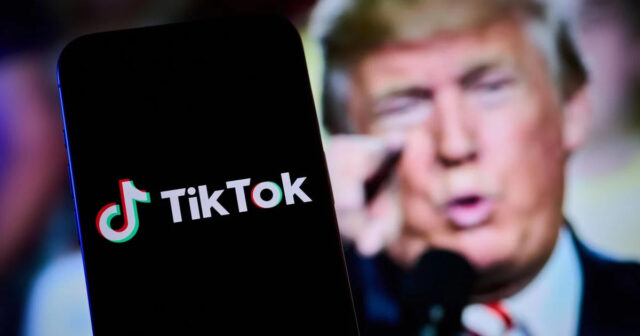
In a surprising intersection of global tech and trade politics, President Donald Trump has suggested that China may agree to the sale of TikTok in exchange for reduced U.S. tariffs, marking a bold and controversial bargaining chip in ongoing U.S.-China relations. As pressure mounts for TikTok to divest from its Chinese parent company, ByteDance, the short-form video app has become more than just a social media phenomenon—it’s now a pivotal piece in a geopolitical negotiation.
A Deal on the Horizon
Speaking during a press conference this week, President Trump claimed that a deal for TikTok’s U.S. operations is “very close,” and hinted that the Chinese government may be willing to approve the sale if it results in tariff relief from Washington.
“The Chinese government knows how important TikTok is,” Trump stated. “And we know how important it is to make trade fair. A deal is being worked on—one that benefits America, protects user data, and brings down tariffs. We’re very close.”
This announcement comes just days before the April 5 deadline imposed by the U.S. government for TikTok to either find a non-Chinese buyer or face a complete ban across the United States. ByteDance has reportedly been in talks with several U.S.-based investors and tech companies about acquiring its American operations.
The Tariff Leverage
At the center of the negotiation is China’s growing economic strain under mounting U.S. tariffs. As of March 2025, China faces a staggering 54% tariff rate on its exports to the United States, following the latest round of tariff hikes announced by President Trump. The U.S. also implemented a 10% baseline tariff on all imports, making it the highest average tariff rate since 1910.
By linking the TikTok sale to tariff negotiations, Trump is using the app’s high profile and political urgency as leverage. Analysts view this as an attempt to force China into more favorable trade terms without direct confrontation.
“TikTok has become a bargaining chip,” says Dr. Lisa Bennett, a professor of international economics at Georgetown University. “Trump is essentially saying, ‘Let TikTok go, and we’ll ease the pressure elsewhere.’ It’s a risky but calculated move.”
ByteDance’s Dilemma
ByteDance, the Beijing-based parent company of TikTok, now faces intense pressure on multiple fronts. The U.S. government has raised concerns over data privacy, national security, and foreign influence, stating that Chinese ownership of the platform poses a threat to American users and democratic processes.
While ByteDance has previously resisted selling, recent reports indicate that the company may be warming to a divestiture if it ensures continued U.S. operations. Multiple U.S. investors—including large tech firms and private equity groups—are reportedly involved in negotiations to acquire TikTok’s American assets.
Any sale, however, would also need approval from the Chinese government, which has been reluctant to allow the transfer of algorithms and sensitive technology to foreign entities. In this case, tariff concessions from the U.S. might soften Beijing’s stance.
Implications for U.S.-China Relations
If this deal proceeds as hinted, it could mark a new form of diplomacy—one where tech assets and digital platforms become pawns in global economic negotiations. It also raises significant questions about the use of executive power in enforcing foreign divestment and leveraging trade tools for geopolitical gain.
Critics warn that linking tariff policy to private corporate sales could set a dangerous precedent. “We’re venturing into a space where foreign policy and economic nationalism are dictating the fate of billion-dollar tech companies,” says Bennett. “It’s strategic, yes, but also volatile.”
What’s Next?
As the April 5 deadline approaches, the world is watching closely. If no deal is reached, TikTok may be banned in the U.S., which could lead to massive disruptions for its 150+ million American users and its vast creator economy. Conversely, a successful deal could not only preserve TikTok’s operations in the U.S. but also reshape U.S.-China trade dynamics in the process.
For now, TikTok stands at a high-stakes crossroads—caught between presidential policy, international trade, and the ever-pressing power of the algorithm.



